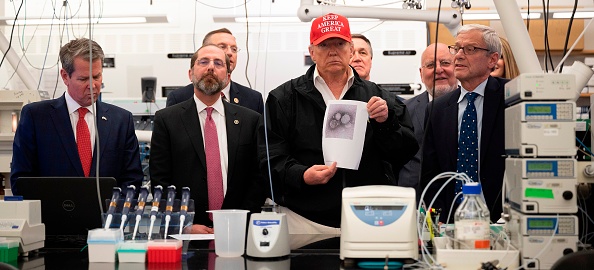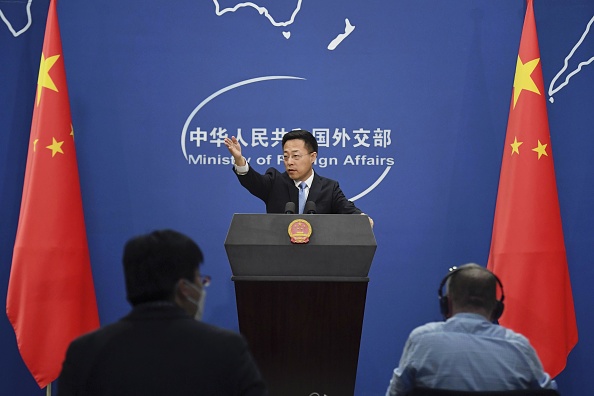
 Global Strains
Global StrainsAs COVID-19 continues its global spread, over 100,000 people around the world have tested positive for the virus and more than 3,400 have died. Along with efforts to contain the spread, economies are sputtering, supply chains are disrupted, schools are closed, and travel systems are in disorder. Chinese researchers have found that there are two active strains of the virus, with 70% of analyzed cases resulting from an aggressive strain, and only 30% from a less aggressive type.
Businesses in China are struggling to stay afloat and workers are facing layoffs and pay cuts. As the spread of the virus outbreak seems to be under control in China, many businesses and factories are jumpstarting operations, although only one-third of the small and medium enterprises were normalized by the end of February. Global shipping routes have also been thrown into chaos, as fewer ships and plummeting exports take a toll on global trade.
Both the United States and China have taken measures to contain the economic fallout, with the Federal Reserve cutting interest rates by half a percentage point, and China freeing up bonds to reduce debt at low-interest rates. Despite these efforts, markets continue to sink and the odds of a global recession continue to rise. For more on the virus's impact on the global economy, read COVID-19 Recalibrates US-China Economic Relations by Christopher McNally on China-US Focus.
One silver lining to the outbreak in China is a noticeably cleaner environment with plunging air pollution levels and clearer skies. Slow industrial production and less coal-burning plants have meant that air pollution has dropped by 25% over the last month, and levels of nitrogen dioxide are down 30%.
 "Let's Play"
"Let's Play"Journalists are the latest victims of rising China-U.S. tensions, as the United States has set a reciprocal personnel cap, which will only allow 100 Chinese journalists to remain in the country, forcing 60 others to leave. Following China's expulsion of three Wall Street Journal reporters, the State Department will limit the number of Chinese journalists that may work in the States for the five state-controlled Chinese news organizations, although the content will not be restricted. Beijing has expressed outrage, promising revenge and saying that Washington has "naked double standards" and is a hegemonic bully.
Visa restrictions between the two countries have been ongoing since last summer, and some worry that the tit-for-tat restrictions will strain the already delicate bilateral relationship. "It is vital to keep as many channels of communication open as possible," writes Doug Bandow, Senior Fellow at the Cato Institute, for China-US Focus. "That includes academics and scholars, especially those with the most sophisticated understanding of the bilateral relationship." Read Doug's full article on China-US Focus.
Despite the restrictive conditions and constant threats of expulsion that foreign correspondents face in China, the new U.S. restrictions will almost guarantee a further clampdown on media freedom in China, and an overall restriction on foreign information flows. The game of tit-for-tat will certainly continue. As Hua Chunying, a Chinese foreign ministry spokesperson, tweeted in response to the restrictions: "Now the U.S. kicked off the game, let's play."
 Spy Games
Spy GamesQihoo, a Chinese cybersecurity firm, has leveled allegations that the Central Intelligence Agency has led an 11-year long hacking campaign against Chinese aviation, internet, energy companies, and other sectors. The outing of alleged CIA operations is a relatively new tactic for Chinese companies to employ, and the U.S. government is unlikely to comment or respond.
Long in the habit of alleging cyberespionage allegations against China, the U.S. has indicted 2 Chinese nationals for helping North Korean hackers steal $100M in Bitcoin and other virtual currencies. U.S. officials claim that the laundered money is funding North Korea's nuclear weapons program. This comes after the U.S. charged Chinese military hackers with hacking Equifax, one of the largest data breaches in history. The charges allege that the data theft was designed to improve Beijing's intelligence operations.
Prepared by China-US Focus editorial teams in Hong Kong and New York, this weekly newsletter offers you snap shots of latest trends and developments emerging from China every week, while adding a dose of historical perspective.
- 2020-02-28 Coronavirus Gone Global
- 2020-02-22 The Virus Continues
- 2020-02-15 Asserting Control
- 2020-02-08 A Novel Outbreak
- 2020-01-31 Global Health Emergency Declared
- 2020-01-24 Celebrations Grounded
- 2020-01-17 Signed, Sealed, Delivered
- 2020-01-10 Ink the Deal
- 2019-12-20 A Level Playing Field
- 2019-12-13 It’s a (Limited) Deal!
- 2019-12-06 An Arbitrary Deadline
- 2019-11-22 On or Off Again?
- 2019-11-15 Counterweight Critique
- 2019-11-08 "I haven't agreed to anything"
- 2019-11-01 Don’t Hold Your Breath
- 2019-10-25 Weaponizing Diplomacy
- 2019-10-18 Economic Shudders
- 2019-10-11 A “Big Day of Negotiations”